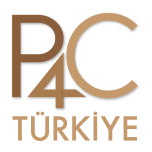
What is Philosophy for Children (P4C) ?
In 1960s, The American professor of philosophy, Matthew Lipman, realize that it is late for his students to learn the right thinking after seeing that their reasoning skills are inadequate. Based on this awareness, Lipman initiates the philosophy (P4C) pedagogy for children.
While Matthew Lipman and one of his followers Ann Sharp develop this pedagogy, they were based on the Socratic method of dialogue. In this method, initially, the person in front of us is assumed to know nothing, and his thinking and questioning are provided by asking him some questions.
An inquirer community (Community of Inquiry) is created in the P4C method. The teacher is called as ‘Facilitator’ in this community. The facilitator does not control the investigation during the investigation which is supported by the facilitator by asking router questions. During the investigation, children are directed to ask questions, to express their thoughts on the questions, and to listen to each other.
In the 1990s, German philosopher and trainer Karin Murris began working with Lipman. As a result of her work, Murris has made it possible for philosophy to be applied to preschool children. In addition to developing story books, he has done practices with children, enabling him to philosophize with young children.

